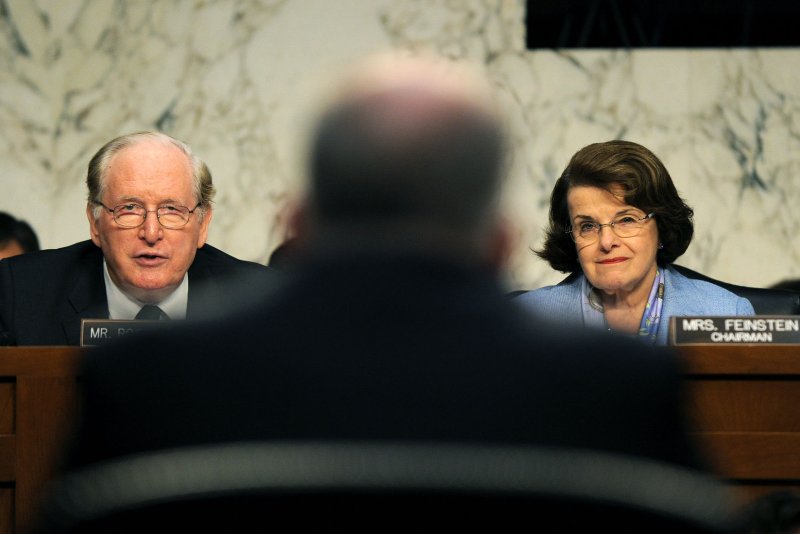Senate Foreign Relations Chairwoman Sen. Dianne Feinstein (D-CA) (R) and ranking member Sen. John Rockefeller (D-WV) question CIA Director nominee John Brennan during his confirmation hearing in Washington, DC on February 7, 2013. (File/UPI/Kevin Dietsch) |
License Photo
WASHINGTON, April 3 (UPI) -- Part of a report on the CIA's detention and interrogation methods will likely see the light of day for the first time after the Senate Intelligence Committee voted 11-3 Thursday to release portions of its findings.
Sections of the committee majority's report will now be sent to the White House for review, but President Obama, who was critical of the program as a senator, is in favor of its release.
"He wants the report declassified so the public can see it," said White House Press Secretary Jay Carney.
Members of the panel, while broadly supporting the report's release, are split on its findings.
Chairwoman Dianne Feinstein, D-Calif., who recently accused the CIA of spying on the committee as it collected its findings, said the report contained "shocking" revelations.
"The purpose of this review was to uncover the facts behind this secret program, and the results were shocking," she said in a lengthy statement. "The report exposes brutality that stands in stark contrast to our values as a nation. It chronicles a stain on our history that must never again be allowed to happen. This is not what Americans do."
And while committee vice-Chairman Saxby Chambliss, R-Ga., supported releasing the report, including the 480-page executive summary and 20 findings and conclusions from within its 6,200 pages, he was critical of its contents.
"Despite the report’s significant errors, omissions, and assumptions -- as well as a lot of cherry-picking of the facts -- I want the American people to be able to see it and judge for themselves," Chambliss said, explaining that he "takes exception" to the conclusion that torture did not yield critical information in the search for Osama bin Laden or other anti-terror efforts.
The committee also approved the declassification of the Republican minority's dissenting report Thursday.















